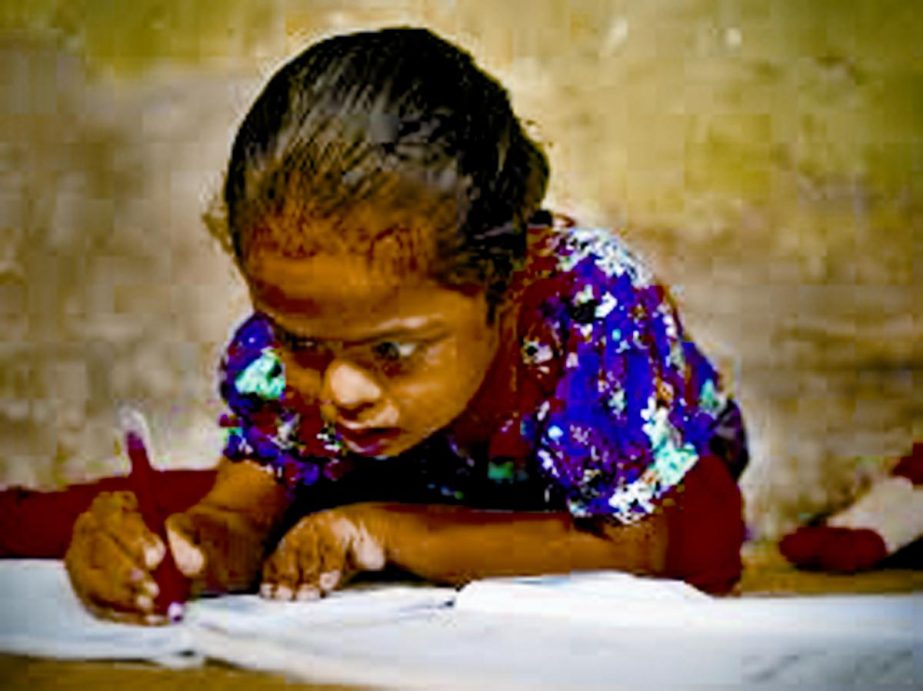
BSS, Dhaka: Mother of two, Dr Bannya has been struggling hard to manage her 14-year-old daughter diagnosed with moderate to severe autism. She is sometimes aggressive. She can’t express what prompts her to sudden sadness or makes her angry but shows good receptive skills. She tries to make mental connection to her loved ones as well. The embattled mother listed all these while tried to define her daughter’s, Tithi’s, condition in an interview recently. “In our society, raising a child with autism is a constant challenge,” said Dr Parveeen Akhter Bannya, a physiologist of a private hospital located in capital Dhaka. “Obviously, it’s an exhausting, exhilarating, and lonely roller coaster ride for the parents of an autistic child.” Her husband, Dr Shahid Iqbal, a cardiologist of a government hospital, also had identical views. In 2008, he said, when Tithi was six-year-old, they understood that something was wrong with their daughter. Initially they got afraid, and then panicked: fearing uncertain future of their child. But over years, they are now not much worried- rather confident and clear in responsibilities. Experts say autism, also called ‘classical autism’ and ‘autism spectrum disorders (ASDs)’, is the most common condition among the developmental disorders. Out of every 1,000, three to six children may have autism. Male babies are four times more likely to have autism than females. There are three distinctive behaviors that characterize autism- difficulties with social interaction, problems with verbal and nonverbal communication, and repetitive behaviors or narrow, obsessive interests. But the distinct feature of autism is impaired social interaction. The autistic children fail to respond to their name and often avoid direct eye contact with other people, the experts say. “I’m not a naughty boy…I’m autistic,” Rushad Dyan, a 12-year-old boy, said it normally, though this sounds quite unusual. Clad in blue denim and striped T-shirt, he had a small microphone hanging from his neck and what he used to talk. “You’ll hear loudly if I talk with this,” he said showing the device, just like a favourite toy of him. Like Rushad, another boy Anindya Ahmed, 13, seemed very busy with his ball. Anindya said he was very much fond of music. Song is also favourite to Bishu, 12, and he likes to dance. Parul loves to perform on the stage, as she earns claps from the audiences. All of them are physically strong and fit, but they are somewhat different neurologically. Except parents and relevant teachers, it is very hard for others to understand their conversation. “These children now understand that autistic means something different. They seem more positive after going through institutional education. They feel others’ affection easily.

